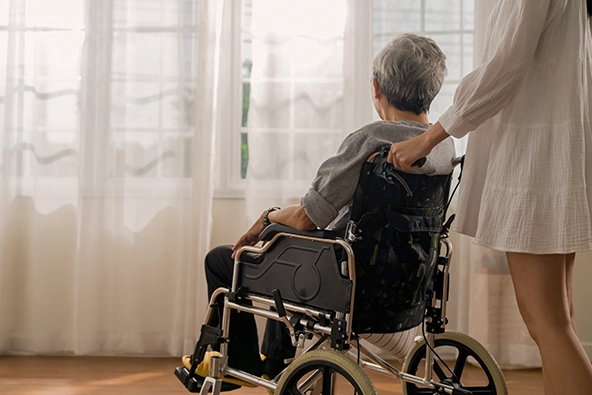When you put your elderly loved one in the care of a facility, you expect them to be looked after. But one in 10 people aged 60 and over in the U.S. has experienced some type of elder abuse, according to the National Council on Aging. You can help your loved one by paying attention to the following five telltale signs.
1. Becoming Unusually Quiet
During visits with your elderly loved one, do they become unusually quiet when a caregiver enters the room? Often, an elderly person will react instinctively when they are afraid of someone. This may include suddenly stopping in the middle of a sentence, or refusing to answer your questions when an abusive caregiver is present. When that person has left, your loved one may become their usual chatty self.
2. Unwarranted Anger
Often, the elderly will lay blame for abuse on their loved one’s shoulders, especially if they feel that it’s this person’s “fault” they are there in the first place. If you sense unwarranted hostility during visits, don’t assume it’s just because of old age or senility. It could be that they are reacting to feelings of anger and frustration over being treated poorly by those who are supposed to be caring for them.
3. Sudden Decline in Health
Elder abuse doesn’t always take the form of physical or verbal abuse. It can also come in a more passive form of withholding care. This sometimes means that an elderly person isn’t given their medications or isn’t given them on the correct schedule. If you notice a sudden or progressive decline in health, don’t accept it at face value. It could be that their doctor’s orders aren’t being followed. Any deterioration in health should be followed up with a visit to your elderly loved one’s personal physician—not just the care facility’s doctor. An independent assessment by a doctor who is not associated with the care facility can determine whether a lack of care and/or medication might be the cause.
4. Uncleanliness in the Room
When you visit, pay attention to the condition of the room and the things that your loved one uses. Are the sheets and pillowcases clean? Is there clean water within reach? Is the room tidy? Is the toilet clean? If the care facility isn’t taking care of the physical room, it’s likely that they aren’t taking care of your loved one, either.
5. Lack of Eye Contact
When elder abuse is happening in a care facility, human nature often means that the staff will be hesitant to make eye contact with visiting relatives. It’s the inside guilt that makes this phenomenon happen. A lack of eye contact can mean nothing, or it can mean that they have something to hide.
When trying to determine if elder abuse is happening, consider a group of signs, not just one. One sign might just be an oversight, but if you notice multiple signs, it’s worth consulting with an elder law attorney to determine the best steps to take. Contact Beasley & Ferber for help.





